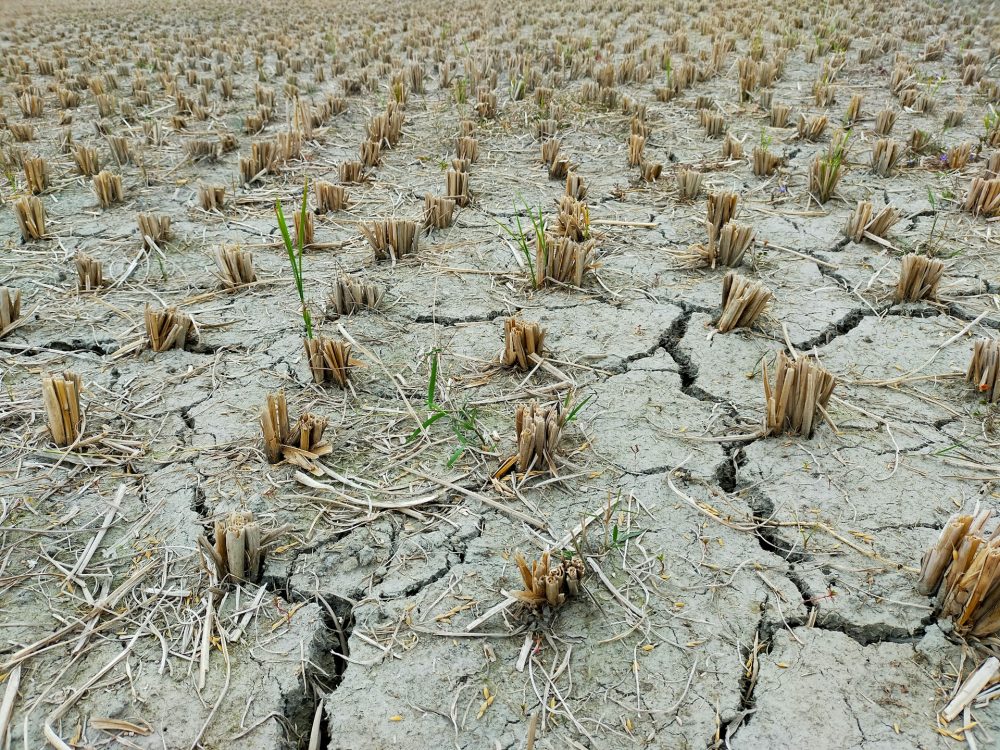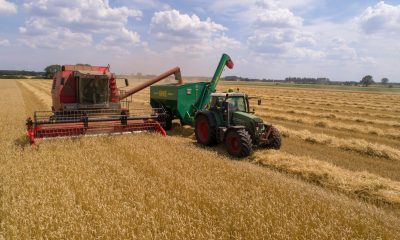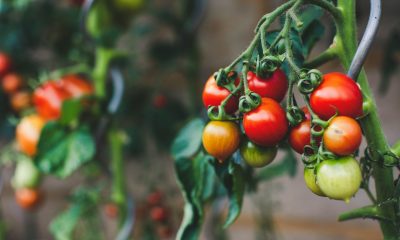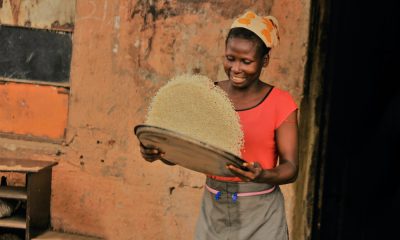Africa
CRISPR-Cas9: Morocco’s Crucial Crossroads for Agricultural Resilience and Food Sovereignty
Morocco, facing historic drought and food security challenges, views CRISPR-Cas9 as a promising tool to boost crop resilience and competitiveness. Unlike GMOs, it edits genes without foreign DNA, sparking a distinct regulatory debate. Yet, legal gaps hinder adoption. Experts urge proactive legislation, export-focused rollout, and innovation ecosystems to secure sovereignty and regional leadership.

Faced with a historic drought, the CRISPR-Cas9 genetic revolution represents real hope for Moroccan agriculture. Capable of creating more resilient crops, this technology nevertheless faces a legal vacuum that is hampering its deployment.
Morocco therefore finds itself at a crucial crossroads for its food sovereignty. This report aims to decipher the multiple facets of this issue. It offers a detailed analysis of the Moroccan context, followed by the combined perspectives of experts from France, Italy, and Egypt, in order to shed light on the challenges and opportunities that CRISPR-Cas9 represents for Morocco and the region.
A quiet revolution is unfolding in laboratories around the world, promising to redefine the future of agriculture. At the heart of this transformation is CRISPR-Cas9, a genome-editing technology capable of creating plants that are more resistant to drought and disease, and less dependent on water resources.
For Morocco, faced with unprecedented water stress and the imperative of food sovereignty, this technological promise resonates with particular acuity. It represents a potential path to secure its yields, strengthen its export competitiveness, and adapt its agriculture to climate realities.
Yet, a gap is widening between the immense potential of this innovation and the reality on the ground. A legal vacuum is paralyzing its development, placing the Kingdom at a crucial crossroads: embracing this advance to remain an agricultural leader or risking a strategic disconnect with its international partners, who are making progress.
A genetic improvement technology distinct from GMOs
CRISPR-Cas9 technology is a genome editing method that allows for precise modification of the DNA of a living organism. For Professor Kamal Aberkani, an agricultural science specialist at Mohammed I University, it is essential not to confuse it with traditional genetically modified organisms (GMOs).
The main difference between CRISPR/Cas9 and conventional GMOs lies in the way the genetic modification is carried out. CRISPR/Cas9 is a genome editing technique that allows for the direct modification of an organism’s genes without inserting foreign DNA, unlike traditional GMOs, which often involve inserting DNA from another species.
Thus, organisms modified by CRISPR-Cas9 have mutations that can be similar to those occurring naturally, while conventional GMOs are characterized by the presence of artificially introduced foreign genetic sequences. This is why Aberkani considers CRISPR-Cas9 as a “kind of mediation between classical genetic selection and GMOs.”
This distinction is central because it suggests a different risk profile and justifies a specific regulatory debate.
A global imperative to address 21st-century agricultural challenges
Interest in this technology is taking place in a complex global context, marked by the water crisis, population growth, and the need to increase food production. International research has amply demonstrated the technical effectiveness of CRISPR-Cas9 in addressing these challenges by improving crop resilience to abiotic (drought and salinity) and biotic (diseases and pests) stresses.
The technical performance of this tool is now validated by a scientific consensus, making it a promising solution for optimizing yields. The objective, as the expert emphasizes, is to “reduce crop dependence on inputs such as water and fertilizers” while increasing profits for producers.
Morocco Faces a Paradox: Scientific Potential of CRISPR-Cas9and Legal Void
In Morocco, research on CRISPR-Cas9 remains experimental and limited. The main obstacle, according to official sources, lies in “the absence of specific national legislation.” The Kingdom has a law banning GMOs, but this text remains silent on genome editing.
This situation creates, in his words, a “legal uncertainty that hinders any progress.” The urgency to act is reinforced by the momentum of Morocco’s main trading partner, the European Union, which is moving towards more flexible regulations.
In this context, Aberkani warns against the risk of a “dangerous gap” which would threaten Morocco’s agricultural competitiveness if it delays in aligning itself.
A Strategic Roadmap for Controlled Adoption
Faced with this impasse, the professor proposes a “proactive” and structured approach. The first step would be to conduct socio-economic impact studies and build a solid legislative framework, aimed at both protecting consumers and securing the national agricultural model.
He suggests a strategic and progressive approach, that of “dedicating the first productions resulting from CRISPR-Cas9 to export to markets that already recognize this technology.” The introduction on the domestic market, meanwhile, should be accompanied by rigorous traceability and clear labeling, in order to guarantee consumer choice.
Beyond Regulation: Building an Innovation Ecosystem
The adoption of CRISPR-Cas9 is not limited to a legislative issue. The vision put forward by the experts is that of building a true innovation ecosystem in plant biotechnology, building on existing research platforms. One point that Aberkani considers “fundamental” is Morocco’s human capital, with qualified young people capable of creating startups specializing in improved seeds.
By mobilizing national funding and capitalizing on international cooperation, Morocco could, according to him, position itself as a “hub for the transfer of CRISPR-Cas9 technology” to the rest of the continent, thus playing a leading role in responding to the challenges of food security in Africa.
__
(Featured image by Md. Hasanuzzaman Himel via Unsplash)
DISCLAIMER: This article was written by a third party contributor and does not reflect the opinion of Born2Invest, its management, staff or its associates. Please review our disclaimer for more information.
This article may include forward-looking statements. These forward-looking statements generally are identified by the words “believe,” “project,” “estimate,” “become,” “plan,” “will,” and similar expressions. These forward-looking statements involve known and unknown risks as well as uncertainties, including those discussed in the following cautionary statements and elsewhere in this article and on this site. Although the Company may believe that its expectations are based on reasonable assumptions, the actual results that the Company may achieve may differ materially from any forward-looking statements, which reflect the opinions of the management of the Company only as of the date hereof. Additionally, please make sure to read these important disclosures.
First published in LES ECO.ma. A third-party contributor translated and adapted the article from the original. In case of discrepancy, the original will prevail.
Although we made reasonable efforts to provide accurate translations, some parts may be incorrect. Born2Invest assumes no responsibility for errors, omissions or ambiguities in the translations provided on this website. Any person or entity relying on translated content does so at their own risk. Born2Invest is not responsible for losses caused by such reliance on the accuracy or reliability of translated information. If you wish to report an error or inaccuracy in the translation, we encourage you to contact us.

-

 Fintech5 days ago
Fintech5 days agoRuvo Raises $4.6M to Power Crypto-Pix Remittances Between Brazil and the U.S.
-

 Cannabis2 weeks ago
Cannabis2 weeks agoCannabis and the Aging Brain: New Research Challenges Old Assumptions
-

 Biotech2 days ago
Biotech2 days agoEurope’s Biopharma at a Crossroads: Urgent Reforms Needed to Restore Global Competitiveness
-

 Crowdfunding1 week ago
Crowdfunding1 week agoAWOL Vision’s Aetherion Projectors Raise Millions on Kickstarter




















